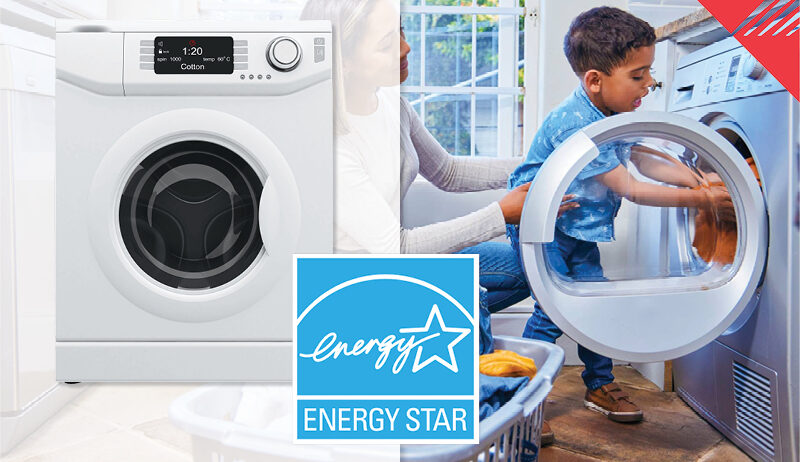In contemporary discourse on climate change, there exists a palpable urgency surrounding the transition to sustainable practices. One remarkable yet often underestimated stratagem in this multifaceted battle against global warming is the adoption of energy-efficient appliances. These devices, designed with cutting-edge technology, not only reduce energy consumption but also have far-reaching implications for the environment, economic disciplines, and societal behaviors.
Energy-efficient appliances utilize advanced engineering to minimize electricity usage—resulting in diminished greenhouse gas emissions. The essence of their energy-saving capabilities lies in improved materials, innovative design, and sophisticated monitoring systems. A plethora of household appliances, from refrigerators and washing machines to air conditioners and light bulbs, can now boast energy efficiency ratings that illuminate their environmental impact. The significance of these ratings cannot be overstated; they offer consumers a transparent gauge of energy consumption, fostering informed purchase decisions that can cumulatively affect national energy grids and, subsequently, global warming.
Addressing the question of how energy-efficient appliances can mitigate global warming prompts us to consider two pivotal areas: reduced carbon footprints and the economic ramifications of energy conservation. When households commit to utilizing energy-efficient devices, they are effectively curtailing their reliance on fossil fuels. Traditional appliances historically consume exorbitant amounts of energy, often generated from non-renewable resources. As a result, higher energy consumption precipitates increased carbon dioxide emissions, thereby exacerbating the greenhouse effect—a primary driver of global warming.
Conversely, energy-efficient appliances are engineered to function with significantly lower energy inputs. For instance, a modern ENERGY STAR-certified refrigerator might use upwards of 15% less energy than its less efficient predecessors. This reduction compounds over time, leading to substantial energy savings not only per household but on a national scale. If millions of homes adopt such appliances, the cumulative effect is likely to result in a pronounced decrease in power plant emissions, which are among the largest contributors to atmospheric carbon levels. Carbon dioxide (CO₂) and other greenhouse gases trap heat in the atmosphere, raising global temperatures and contributing to an array of climate-related issues, including extreme weather events and rising sea levels. Therefore, every energy-efficient appliance installed is a step towards a sustainable future and a testament to personal and collective responsibility.
Moreover, the economic impact of widespread energy-efficient appliance usage cannot be overlooked. Many consumers express concerns regarding the initial investment associated with these products; however, long-term savings on energy bills often dwarf the upfront costs. Energy-efficient appliances consume less electricity, which translates into lower utility bills. Households employing this technology often see a reduction in their monthly spending, bolstering economic resilience while simultaneously promoting a socially responsible lifestyle. The money saved can then be allocated to other sustainable practices such as solar panel installations or home energy audits, continuing the cycle of environmental stewardship.
The pivotal role of energy-efficient appliances extends beyond economic savings and reduced carbon emissions; these technologies also stimulate economic growth through job creation and innovation. As demand for energy-efficient products increases, manufacturers are incentivized to invest in research and development. This, in turn, fosters technological advancements and cultivates a more sustainable manufacturing sector, demonstrating that environmental sustainability and economic growth can coexist synergistically. Employment opportunities in sustainable industries, including green manufacturing and energy conservation techniques, proliferate as society collectively embraces environmental responsibility.
Beyond the technical and economic advantages, there exists a broader socio-cultural narrative that merits exploration. The embrace of energy-efficient appliances can serve as a catalyst for behavioral shifts within households and communities. As individuals engage with environmentally conscious choices, they inherently propagate a culture of sustainability that emphasizes responsibility towards our planet. This culture can be engendered through education and advocacy, encouraging families to reconsider their daily choices and prioritize eco-friendly options.
Furthermore, as energy-efficient appliances become more mainstream, they often evoke a deeper fascination with sustainability. The integration of smart technologies—such as programmable thermostats or smart plugs—can enhance user experiences and foster a sense of empowerment. Home automation, wherein appliances can be monitored and controlled remotely, allows for proactive management of energy usage. This not only sets the foundation for responsible consumption but encourages audiences to delve deeper into the realm of renewable energy and sustainable practices.
Perhaps most compelling is the symbiotic relationship between consumers and the broader environmental movement. Each choice made can reverberate through the socio-economic fabric, galvanizing others to adopt similar practices. This phenomenon of collective action illustrates the profound impact that energy-efficient appliances can have on public conscience and behavior surrounding climate change.
In summation, the adoption of energy-efficient appliances presents a unique avenue to combat global warming while simultaneously yielding economic and social benefits. By reducing energy consumption, these devices play an instrumental role in lowering carbon footprints and mitigating greenhouse gas emissions. The long-term economic advantages, coupled with the potential for cultural transformation and collective responsibility, render energy-efficient appliances not merely a household enhancement but a vital component of a larger, systemic approach to sustainability. The imperative is clear: our choices today will shape the world of tomorrow. Energy-efficient appliances are not just products; they are a critical pivot on our path toward a more sustainable, resilient future.








